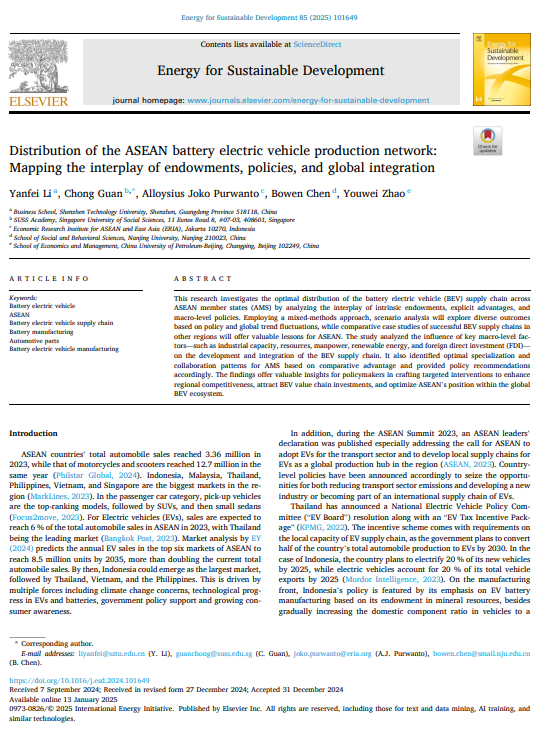
Keyword(s)
Author(s)
Yanfei Li, Chong Guan, Alloysius Joko Purwanto, Bowen Chen, Youwei Zhao
Country(ies)
Publisher
Published Date
Access
DOI
This research investigates the optimal distribution of the battery electric vehicle (BEV) supply chain across ASEAN member states (AMS) by analyzing the interplay of intrinsic endowments, explicit advantages, and macro-level policies. Employing a mixed-methods approach, scenario analysis will explore diverse outcomes based on policy and global trend fluctuations, while comparative case studies of successful BEV supply chains in other regions will offer valuable lessons for ASEAN. The study analyzed the influence of key macro-level factors—such as industrial capacity, resources, manpower, renewable energy, and foreign direct investment (FDI)—on the development and integration of the BEV supply chain. It also identified optimal specialization and collaboration patterns for AMS based on comparative advantage and provided policy recommendations accordingly. The findings offer valuable insights for policymakers in crafting targeted interventions to enhance regional competitiveness, attract BEV value chain investments, and optimize ASEAN’s position within the global BEV ecosystem.